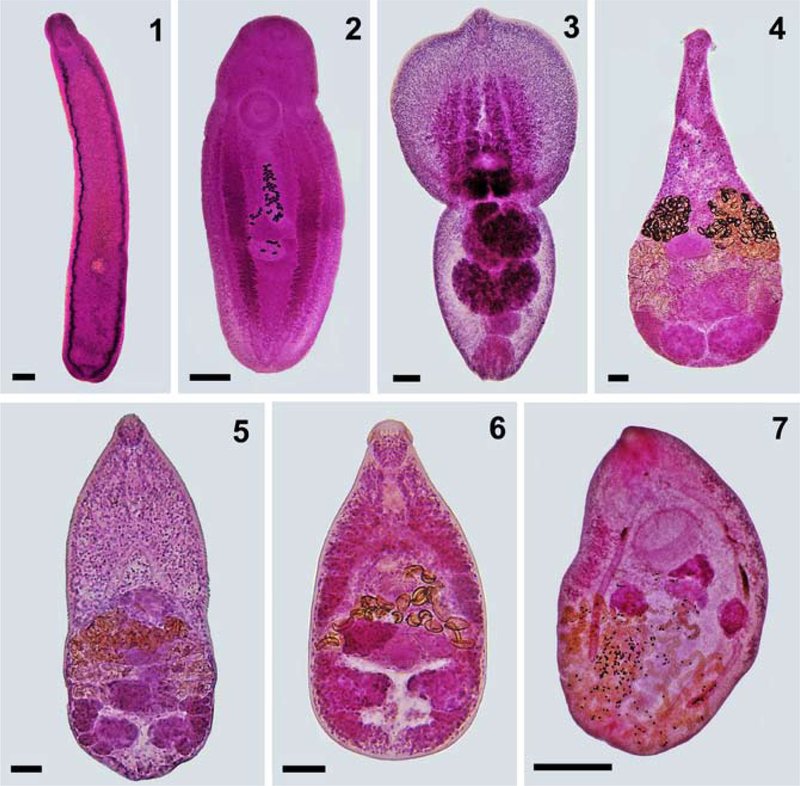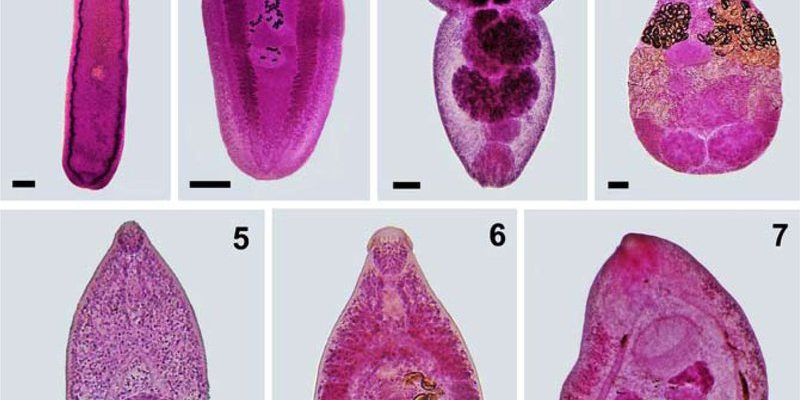
Imagine a bustling party where everyone is chatting, dancing, and enjoying refreshments. Now, picture the cleaning crew that clears away empty cups and food wrappers, ensuring the party can keep going. Trematodes operate in a similar way within ecosystems. They may live inside other animals, but their influence stretches far beyond their immediate living conditions. Let me explain further why these fascinating creatures are essential for ecological balance.
Understanding Trematodes: What Are They?
Trematodes, commonly known as flukes, belong to a group of parasitic worms within the class Trematoda. They have a unique lifecycle that typically involves at least two hosts—often a mollusk and a vertebrate. This means that they can be found in a range of environments, from freshwater ponds to the oceans. Their bodies are flat and leaf-shaped, which helps them cling to their hosts. Honestly, if you’ve ever seen one, you’d probably be surprised at how simple yet effective they look.
These worms can be found in various animal species, including fish, amphibians, and mammals, including humans. What’s fascinating is how they can manipulate their host’s behavior. For instance, some trematodes make their host less cautious, making them more susceptible to predation. Think of it like a puppet master pulling the strings. In this way, trematodes can play a significant role in shaping animal populations.
The Role of Trematodes in Ecosystems
Trematodes may seem like they primarily harm their hosts, but they actually contribute to ecosystem balance. By affecting the population dynamics of host species, they help prevent any one species from becoming too dominant. Remember how a balanced diet is essential for our health? Ecosystems thrive on balance too. If one species grows too numerous, it can disrupt the entire web of life around it.
Take the example of trematodes affecting fish populations. They can regulate who survives and who doesn’t, which ultimately impacts larger predators like birds and mammals that rely on fish as a food source. Without trematodes, some fish populations might explode, leading to overgrazing of aquatic plants. This, in turn, can degrade water quality and habitat availability for many other aquatic organisms.
Trematodes and Biodiversity
Biodiversity is crucial for a healthy ecosystem, and trematodes contribute to this richness. By acting as parasites, they create a complex network of interactions that can support many other organisms. Their presence can influence the genetic diversity within fish populations, which is essential for resilience against diseases and environmental changes.
It’s interesting to note that some studies have found a correlation between the diversity of trematode species and the overall health of ecosystems. Areas with more diverse trematode communities tend to have richer aquatic life. This diversity reflects the quality of the ecosystem, serving as a crucial indicator for scientists studying environmental health.
The Connection Between Trematodes and Human Health
While trematodes can cause diseases in their hosts, including humans, they also play roles in the larger context of health and medicine. For example, the study of these parasites can lead to advances in understanding complex diseases. Researchers often use trematodes as model organisms to study immune responses and host-parasite interactions. You might think of them as tiny research assistants in the lab, teaching us how to combat more dangerous illnesses.
Moreover, understanding how trematodes impact fish populations can help manage fisheries and maintain healthy aquatic ecosystems. If we know how these parasites interact with their hosts, we can develop better practices to ensure sustainable fishing and protect vulnerable species. It’s all about finding a balance, much like maintaining a healthy diet.
Conservation Implications of Trematodes
With many ecosystems under threat from pollution, climate change, and habitat loss, the role of trematodes is becoming increasingly important. They can serve as bioindicators of environmental health, signaling when something is off-balance. Monitoring trematode populations can provide crucial insights into the overall state of freshwater and marine ecosystems.
Conservation efforts that consider the role of trematodes can lead to more effective strategies for protecting biodiversity. By ensuring that both hosts and parasites are managed, we can foster healthier ecosystems. It’s kind of like tending to a garden—if you only focus on the flowers without considering the weeds, you won’t achieve much.
The Future of Trematodes in a Changing Environment
As our world continues to evolve, the challenges faced by trematodes—and the ecosystems they inhabit—are also changing. Climate change, habitat destruction, and pollution can alter the delicate balance between hosts and parasites. This can lead to changes in the behavior, distribution, and abundance of trematodes, ultimately affecting entire ecosystems.
To protect the ecological importance of trematodes, it’s essential to support research that explores their roles in various environments. Understanding how they adapt to changes will be crucial in conservation strategies. After all, if we want to maintain the health of our ecosystems, we can’t overlook these small but mighty creatures.
In the grand scheme of life on Earth, trematodes might seem like minor players. However, their ecological importance cannot be understated. From regulating host populations to contributing to biodiversity, these tiny parasites have a significant impact on the environment. They’re like the unsung heroes of the ecosystem, working tirelessly behind the scenes.
By recognizing the roles that trematodes play, we can appreciate the complexity of ecological networks. They remind us that every species, no matter how small, has a part in the intricate web of life. As we move forward in addressing environmental challenges, let’s not forget to consider the trematodes and their vital contributions to the world around us.

